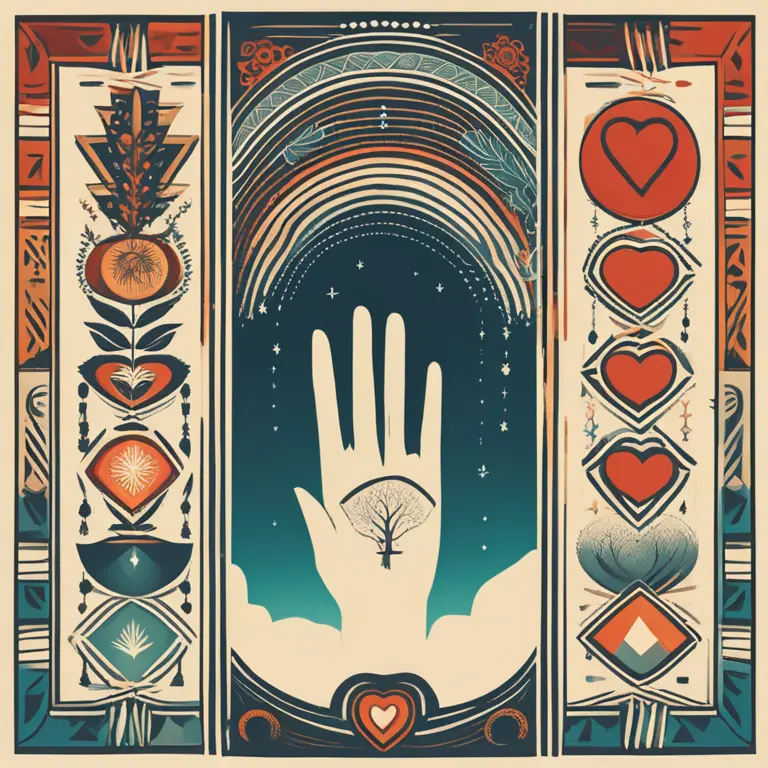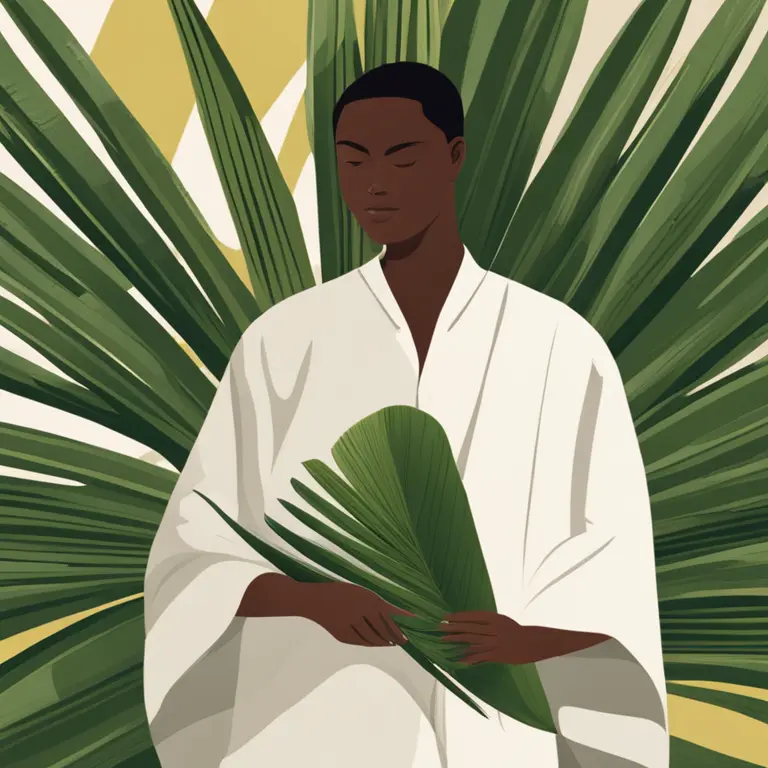
The Essential Guide to Palmistry
Embark on a journey through the lines of your hands with this insightful guide to the art of palmistry, tailored for the curious mind.
article by Nora Pennington
Introduction to Palmistry
Palmistry, also known as chiromancy or palm reading, is a practice rooted in ancient civilizations and remains a captivating subject today. With origins traced back to India, spread through China, Tibet, Persia, Egypt, and ancient Greece, it's a universal form of personal insight. This art interprets the lines, mounts, and shapes of the hands, each aspect believed to reveal different facets of an individual's life and personality. As you read, remember that palmistry is not about strict determinism but rather about the nuanced understanding of potential paths and traits.

Mapping the Hand
In palmistry, both hands are considered: the dominant hand provides insight into the present life and conscious choices, while the non-dominant hand is thought to reveal inherited traits and potential. The palm is divided into areas called mounts, named after celestial bodies which align with different characteristics. For example, the Mount of Venus relates to love and vitality, while the Mount of Mercury speaks to communication skills.

Decoding Life's Path
The lines on the palm are the most famous features in palm reading. The Life Line encircles the thumb and provides insights into life's journey, health, and vitality. A common misconception is that a short Life Line predicts a short life; rather, it often indicates a need for self-care and caution. The head Line, running across the palm, signifies intellectual tendencies and decision-making approaches, and the Heart Line, above it, reflects emotional stability and romantic perspectives.

Fate and Fortune
Less prominent but still significant is the Fate Line, a vertical line that may not appear on all hands. It gives clues about life changes, career paths, and successes. The Sun Line, though not always present, relates to public acclaim and potential wealth. While these lines propose certain narratives, remember that palmists consider them to be maps of what could be, rather than definitive scripts of what will be.

The Art of Interpretation
The analysis goes beyond lines and mounts; finger shapes, thumb angles, and fingernail types all play their role in a thorough reading. For example, a square palm with short fingers may indicate a practical, logical nature, whereas long, narrow palms and fingers suggest creativity. The flexibility of the thumb can speak to adaptability, and even the texture of the skin is noted for its insight into lifestyle and predispositions.
Modern Palmistry
In today's digital era, palmistry has evolved. Now, there are apps integrating AI to read hands and websites offering virtual consultations. However, the tactile connection between palmist and client remains a valued tradition. Advanced scanning and imagery techniques help in bringing more clarity to readings, ensuring that the ancient art maintains its charm while keeping up with the times.
Palmistry as a Guide
Whether you approach palmistry with skepticism or belief, it can be a reflective tool for self-discovery. Rather than providing a fixed future, palm readings can prompt introspection and awareness, offering a chance to explore personal strengths, challenges, and opportunities. Use this guide as an invitation to understand more about this intriguing practice and, perhaps, about yourself.
Published: 1/11/2024
Modified: 1/12/2024
More predictions
Come back here soon to learn more about yourself and your future


Can Palmistry Foresee One’s Demise?
Delve into the contentious debate about whether palmistry can predict the end of life and the ethical considerations of such a claim.


The Efficacy of Palmistry: Real Insight or Fancy?
Delve into the validity of palmistry as a form of divination. Is there a truth behind the lines on our palms, or is it just a charming fancy?


The Ancient Art of Vedic Palmistry
Discover the ancient art of Vedic Palmistry and its practice in the modern era, revealing the secrets held within the lines of the hand.